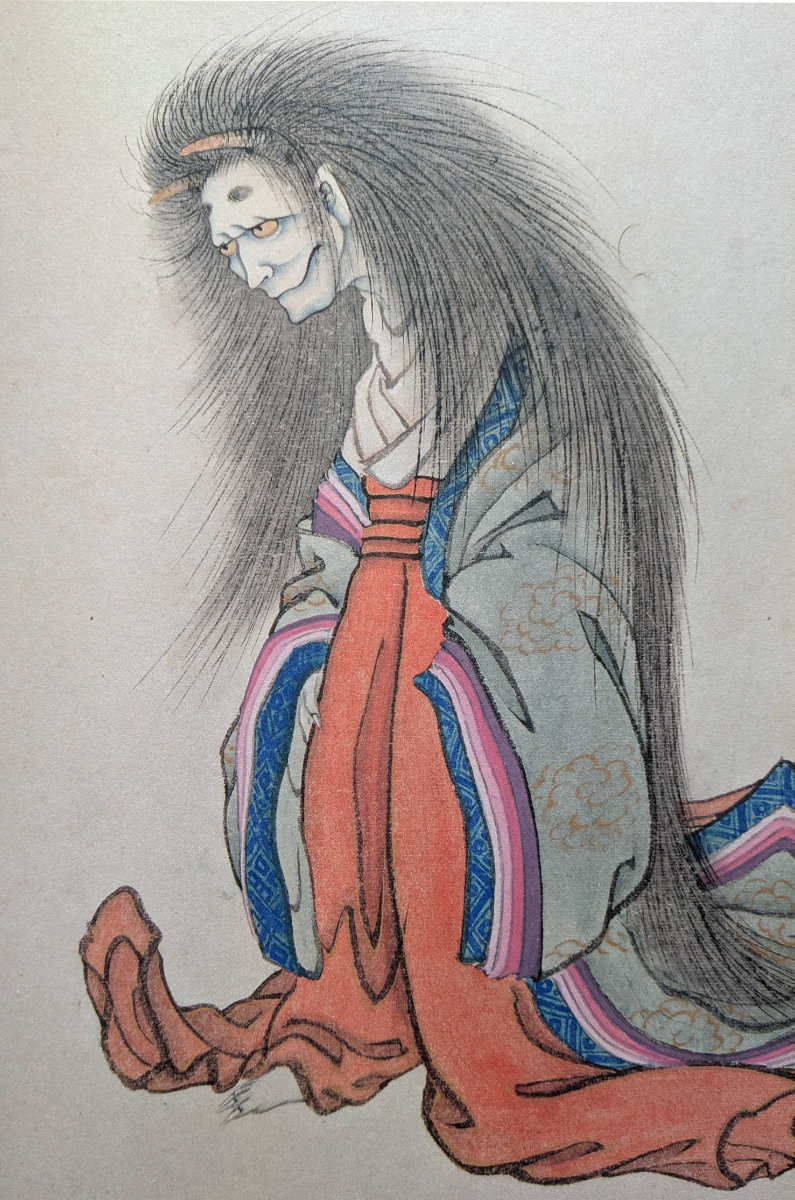Obake and bakemono are a class of yōkai, preternatural creatures in Japanese folklore. Literally, the terms mean a thing that changes, referring to a state of transformation or shapeshifting. These words are often translated as “ghost”, but primarily they refer to living things or supernatural beings who have taken on a temporary transformation, and these bakemono are distinct from the spirits of the dead. However, as a secondary usage, the term obake can be a synonym for yūrei, the ghost of a deceased human being. A bakemono’s true form may be an animal such as a fox (kitsune), a raccoon dog (bake-danuki), a badger (mujina), a transforming cat (bakeneko), the spirit of a plant—such as a kodama, or an inanimate object which may possess a soul in Shinto and other animistic traditions. Obake derived from household objects are often called tsukumogami. A bakemono usually either disguises itself as a human or appears in a strange or terrifying form such as a hitotsume-kozō, an ōnyūdō, or a noppera-bō. In common usage, any bizarre apparition can be referred to as a bakemono or an obake whether or not it is believed to have some other form, making the terms roughly synonymous with yōkai.
| Alias Obake (お化け) |
| Real Names/Alt Names “Thing that changes”; Alt: Bakemono (化け物) |
| Characteristics Yōkai, Shapeshifter, Scientific Revolution, Japanese |
| Creators/Key Contributors Toriyama Sekien, ○ |
| First Appearance Japanese folklore |
| First Publisher ○ |
| Appearance List Bakemono no e (化物之繪, “Illustrations of Supernatural Creatures”, Edo Period) |
| Sample Read Bakemono no e (Edo Period) [Internet Archive] |
| Description Obake and bakemono are a class of yōkai, preternatural creatures in Japanese folklore. Literally, the terms mean a thing that changes, referring to a state of transformation or shapeshifting. These words are often translated as “ghost”, but primarily they refer to living things or supernatural beings who have taken on a temporary transformation, and these bakemono are distinct from the spirits of the dead. However, as a secondary usage, the term obake can be a synonym for yūrei, the ghost of a deceased human being. A bakemono’s true form may be an animal such as a fox (kitsune), a raccoon dog (bake-danuki), a badger (mujina), a transforming cat (bakeneko), the spirit of a plant—such as a kodama, or an inanimate object which may possess a soul in Shinto and other animistic traditions. Obake derived from household objects are often called tsukumogami. A bakemono usually either disguises itself as a human or appears in a strange or terrifying form such as a hitotsume-kozō, an ōnyūdō, or a noppera-bō. In common usage, any bizarre apparition can be referred to as a bakemono or an obake whether or not it is believed to have some other form, making the terms roughly synonymous with yōkai. |
| Source Obake – Wikipedia |

